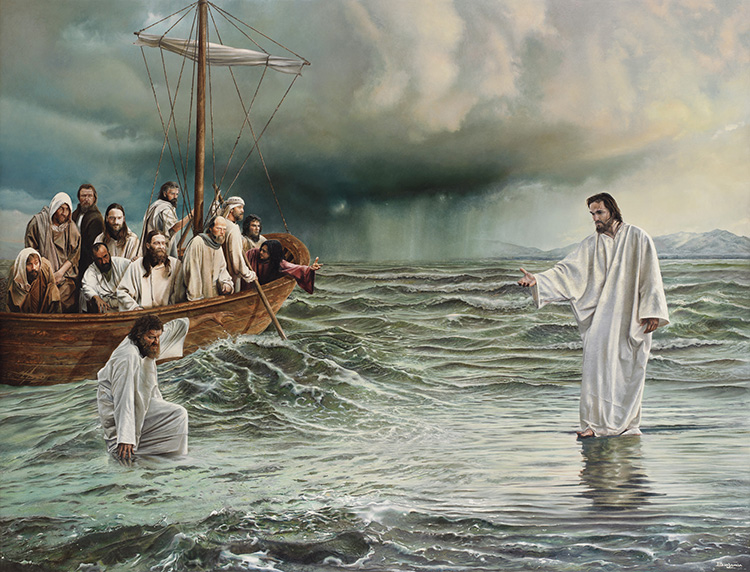Not so with Irenaeus and Tertullian. The principal works of the latter against the Heretics, were written after his separation from the Catholic Church, when he had ranged himself among the zealous followers of Montanus; and teem with unfairness and bigoted prejudice.
Page 189
He has exaggerated every Gnostic opinion to a monstrous absurdity, and his arguments are not based on coercive reasoning but simply on the blind stubbornness of a partisan fanatic. Discussing Basilides, the “pious, god-like, theosophic philosopher,” as Clemens of Alexandria thought him, Tertullian exclaims: “After this, Basilides, the heretic, broke loose. He asserted that there is a Supreme God, by name Abraxas, by whom Mind was created, whom the Greeks call Nous. From her emanated the Word; from the Word, Providence; from Providence, Virtue and Wisdom; from these two again, Virtues, Principalities, and Powers were made; thence infinite productions and emissions of angels. Among the lowest angels, indeed, and those that made this world, he sets last of all the god of the Jews, whom he denies to be God himself, affirming that he is but one of the angels.”
It would be equally useless to refer to the direct apostles of Christ, and show them as holding in their controversies that Jesus never made any difference between his “Father” and the “Lord-God” of Moses. For the Clementine Homilies, in which occur the greatest argumentations upon the subject, as shown in the disputations alleged to have taken place between Peter and Simon the Magician, are now also proved to have been falsely attributed to Clement the Roman. This work, if written by an Ebionite — as the author of Supernatural Religion declares in common with some other commentators — must have been written either far later than the Pauline period, generally assigned to it, or the dispute
Page 190
about the identity of Jehovah with God, the “Father of Jesus,” have been distorted by later interpolations. This disputation is in its very essence antagonistic to the early doctrines of the Ebionites. The latter, as demonstrated by Epiphanius and Theodoret, were the direct followers of the Nazarene sect (the Sabians), the “Disciples of John.” He says, unequivocally, that the Ebionites believed in the AEons (emanations), that the Nazarenes were their instructors, and that “each imparted to the other out of his own wickedness.” Therefore, holding the same beliefs as the Nazarenes did, an Ebionite would not have given even so much chance to the doctrine supported by Peter in the Homilies. The old Nazarenes, as well as the later ones, whose views are embodied in the Codex Nazaraseus, never called Jehovah otherwise than Adonai, Iurbo, the God of the Abortive (the orthodox Jews). They kept their beliefs and religious tenets so secret that even Epiphanius, writing as early as the end of the fourth century, confesses his ignorance as to their real doctrine. “Dropping the name of Jesus,” says the Bishop of Salamis, “they neither call themselves Iessaens, nor continue to hold the name of the Jews, nor name themselves Christians, but Nazarenes . . . The resurrection of the dead is confessed by them . . . but concerning Christ, I cannot say whether they think him a mere man, or as the truth is, confess that he was born through the Holy Pneuma from the Virgin.”
While Simon Magus argues in the Homilies from the standpoint of every Gnostic (Nazarenes and Ebionites included), Peter, as a true apostle of circumcision, holds to the old Law and, as a matter of course, seeks to blend his belief in the divinity of Christ with his old Faith in the “Lord God” and ex-protector of the “chosen people.” As the author of Supernatural Religion shows, the Epitome, “a blending of the other two, probably intended to purge them from heretical doctrine” and, together with a great majority of critics, assigns to the Homilies, a date not earlier than the end of the third century, we may well infer that they must differ widely with their original, if there ever was one. Simon the Magician proves throughout the whole work that the Demiurgus,
Page 191
the Architect of the World, is not the highest Deity; and he bases his assertions upon the words of Jesus himself, who states repeatedly that “no man knew the Father.” Peter is made in the Homilies to repudiate, with a great show of indignation, the assertion that the Patriarchs were not deemed worthy to know the Father; to which Simon objects again by quoting the words of Jesus, who thanks the “Lord of Heaven and earth that what was concealed from the wise” he has “revealed to babes,” proving very logically that according to these very words the Patriarchs could not have known the “Father.” Then Peter argues, in his turn, that the expression, “what is concealed from the wise,” etc., referred to the concealed mysteries of the creation.

Moe is the founder of GnosticWarrior.com. He is a father, husband, author, martial arts black belt, and an expert in Gnosticism, the occult, and esotericism.




